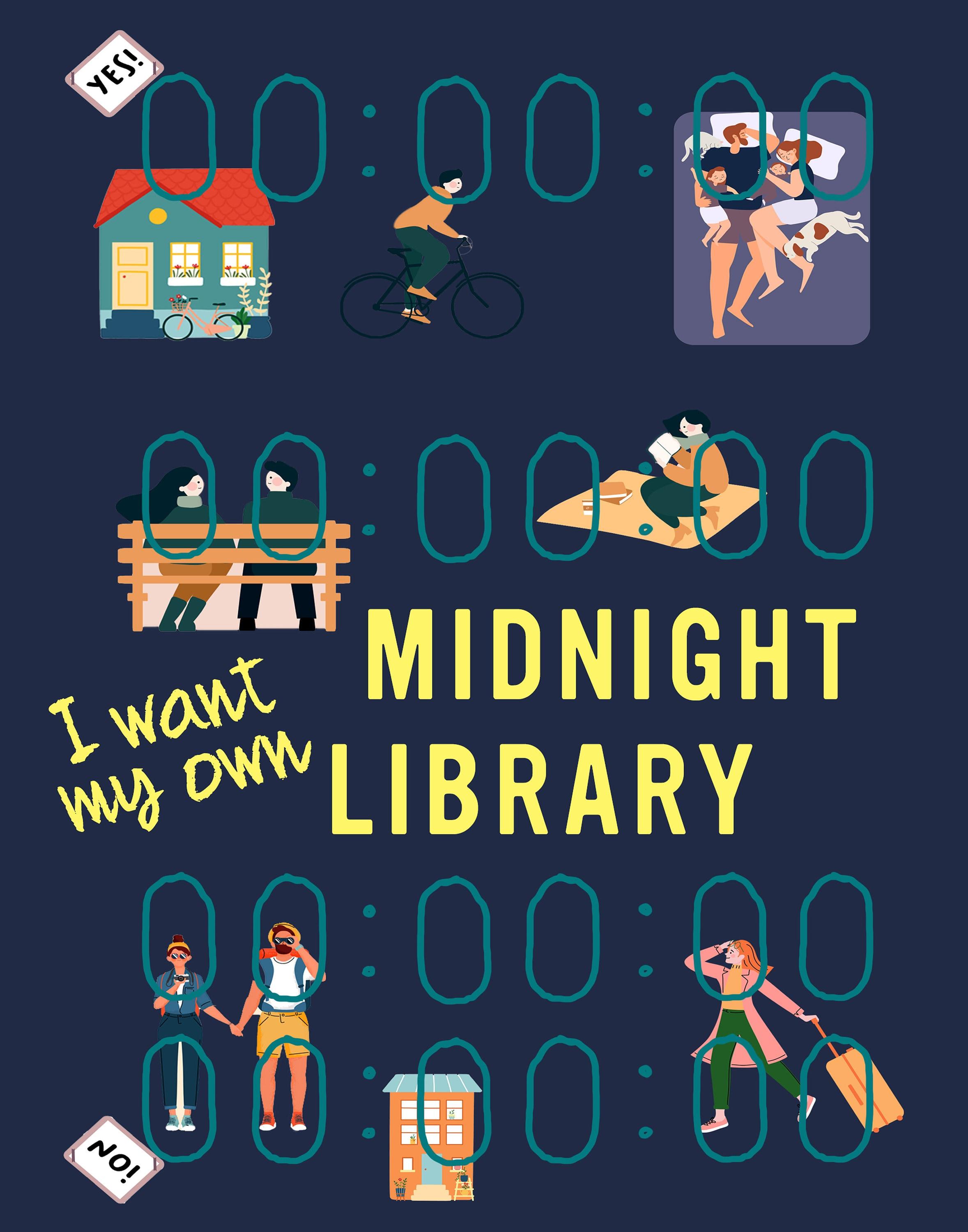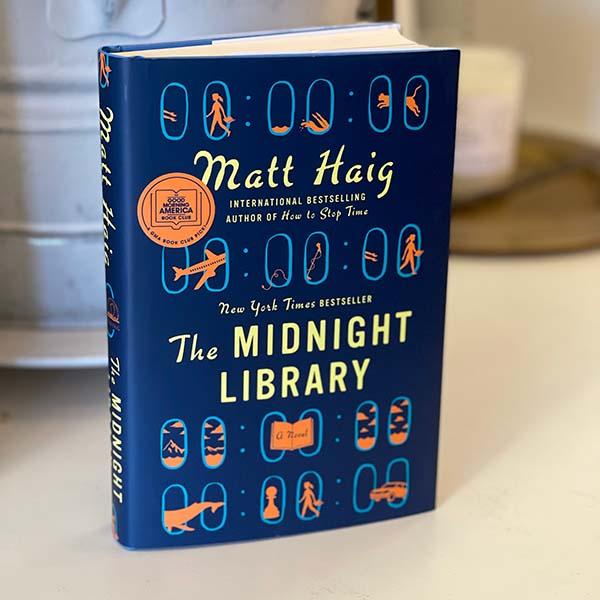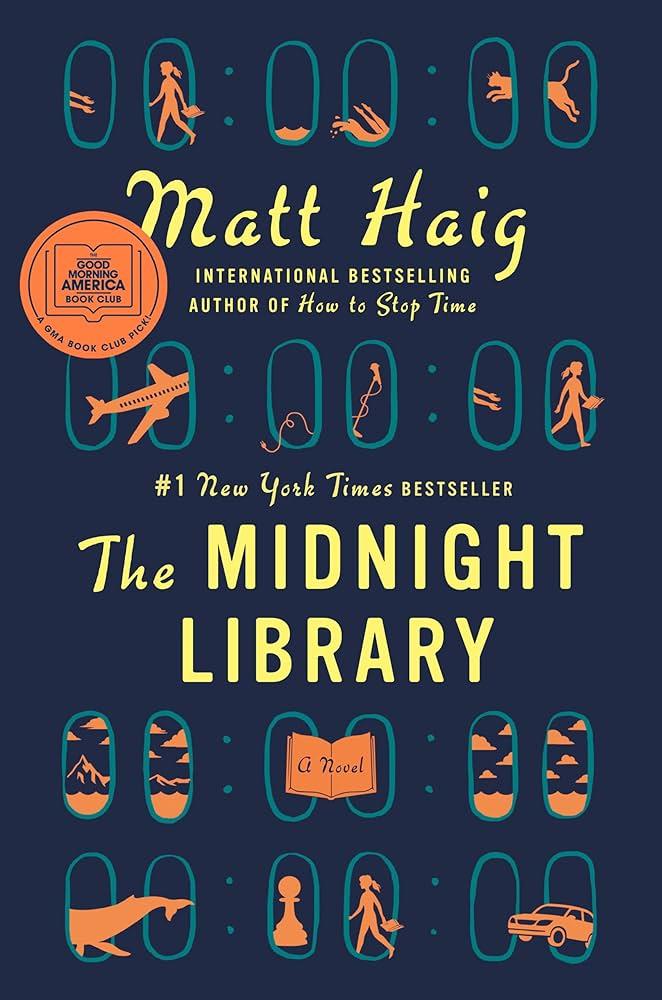In the ever-evolving landscape of contemporary literature, certain works emerge that not only capture the imagination but also provoke deeper contemplation on life’s fundamental questions. Matt Haig’s “The Midnight Library” has swiftly garnered attention and acclaim, positioning itself as a notable contender in the realm of philosophical fiction. This article seeks to analytically explore whether “The Midnight Library” truly stands as the best philosophical novel of the year. By examining its thematic depth, narrative structure, and philosophical underpinnings, we aim to assess the novel’s impact and significance within the broader context of philosophical literature. As we delve into its pages, we consider both the novel’s merits and its limitations, offering a balanced perspective on its place in the literary canon of the year.
Exploring the Philosophical Themes in The Midnight Library
Matt Haig’s The Midnight Library delves into the intricate web of existential questions and moral dilemmas, offering a profound exploration of the human condition. The novel’s protagonist, Nora Seed, finds herself in a library between life and death, where each book represents a different life she could have lived. This concept introduces readers to a multitude of philosophical themes, such as the significance of choices, the quest for meaning, and the nature of regret. Through Nora’s journey, the narrative prompts readers to contemplate the impact of their decisions and the limitless possibilities that life offers, questioning whether a perfect life truly exists.
- Existentialism: The novel examines the core tenets of existentialist philosophy, particularly the search for purpose in an indifferent universe.
- Determinism vs. Free Will: It raises questions about the extent to which our lives are predestined by past choices or shaped by our ability to make new ones.
- Identity and Self-Discovery: Nora’s exploration of alternate realities serves as a metaphor for the journey of self-discovery and the fluid nature of identity.
By weaving these themes into a compelling narrative, The Midnight Library not only engages readers on an emotional level but also invites them to ponder the deeper philosophical questions that underpin human existence. The novel challenges readers to reassess their own lives and consider how their choices shape their reality, making it a significant contender for the title of this year’s best philosophical novel.

Analyzing Character Development and Existential Questions
In “The Midnight Library,” Matt Haig crafts a narrative that intricately explores the intricacies of character evolution through the lens of existential inquiry. The protagonist, Nora Seed, finds herself in a unique library that allows her to traverse through alternate versions of her life, each decision branching into a new reality. This clever narrative device serves as a conduit for profound character development, as Nora is compelled to confront her deepest regrets, fears, and desires. Through her journey, readers witness her transformation from a woman overwhelmed by despair to someone who learns to appreciate the multifaceted nature of existence.
The novel deftly interweaves existential themes, prompting readers to reflect on their own lives. Key existential questions arise throughout the story, such as:
- What constitutes a life well-lived?
- How do our choices define us?
- Is there a singular path to happiness?
Haig’s narrative suggests that life’s value is not in its perfection but in its imperfections and uncertainties. By analyzing Nora’s journey, the reader is invited to ponder whether the search for meaning is more valuable than the meaning itself, making “The Midnight Library” a compelling exploration of philosophical themes.

Comparing The Midnight Library to Other Contemporary Philosophical Novels
In the realm of contemporary philosophical novels, The Midnight Library by Matt Haig stands as a fascinating exploration of life’s infinite possibilities and the choices that define our existence. While its central premise—a library where each book represents a different version of one’s life—offers a compelling narrative device, it invites comparison with other notable works in the genre. For instance, Richard Powers’ “The Overstory” intricately weaves human lives with the broader narrative of trees and nature, questioning humanity’s role in the ecological balance. Similarly, “Klara and the Sun” by Kazuo Ishiguro delves into the essence of human emotions through the lens of artificial intelligence, posing philosophical questions about consciousness and companionship.
When analyzing these works side by side, several thematic elements emerge:
- Choice and Regret: While “The Midnight Library” primarily focuses on choices and their consequences, novels like “Anxious People” by Fredrik Backman also delve into human errors and redemption, albeit with a more humorous twist.
- Existential Inquiry: Both Haig’s and Ishiguro’s narratives examine what it means to truly live, yet they diverge in their narrative styles and philosophical depths.
- Interconnectedness: Powers’ narrative in “The Overstory” emphasizes the interconnectedness of life forms, a theme that resonates with Haig’s exploration of alternate lives.
Each of these novels offers a unique perspective on philosophical questions, making it challenging to crown a single one as the best. Instead, they collectively enrich the landscape of contemporary philosophical fiction, inviting readers to ponder the profound questions of life and existence.

Assessing the Impact of The Midnight Library on Modern Readers
The Midnight Library, penned by Matt Haig, has captivated readers with its unique blend of speculative fiction and profound philosophical inquiry. This narrative offers a labyrinth of possibilities, each book in the library presenting a different version of life, inviting readers to ponder the concept of infinite choices and their consequences. Modern readers are drawn to its exploration of themes such as regret, potential, and the meaning of life, resonating with the contemporary quest for self-discovery and fulfillment. The novel’s impact is evident in its ability to evoke introspection, prompting readers to reflect on their personal choices and alternate life paths.
- Emotional Resonance: Many readers find a deep connection with Nora’s journey, as it mirrors their own struggles with regret and unfulfilled dreams.
- Philosophical Exploration: The novel’s exploration of existential questions provides a thought-provoking experience, encouraging readers to engage with complex ideas about life and purpose.
- Cultural Reflection: In a time where the search for meaning is prevalent, The Midnight Library acts as a mirror to societal concerns, making it a significant cultural artifact.
By intertwining personal narrative with philosophical musings, the book not only entertains but also educates, offering a literary experience that challenges readers to consider the breadth of their own existence. Whether or not it stands as the best philosophical novel of the year, its impact on readers is undeniable, fostering a dialogue about life’s possibilities and the power of choice.
